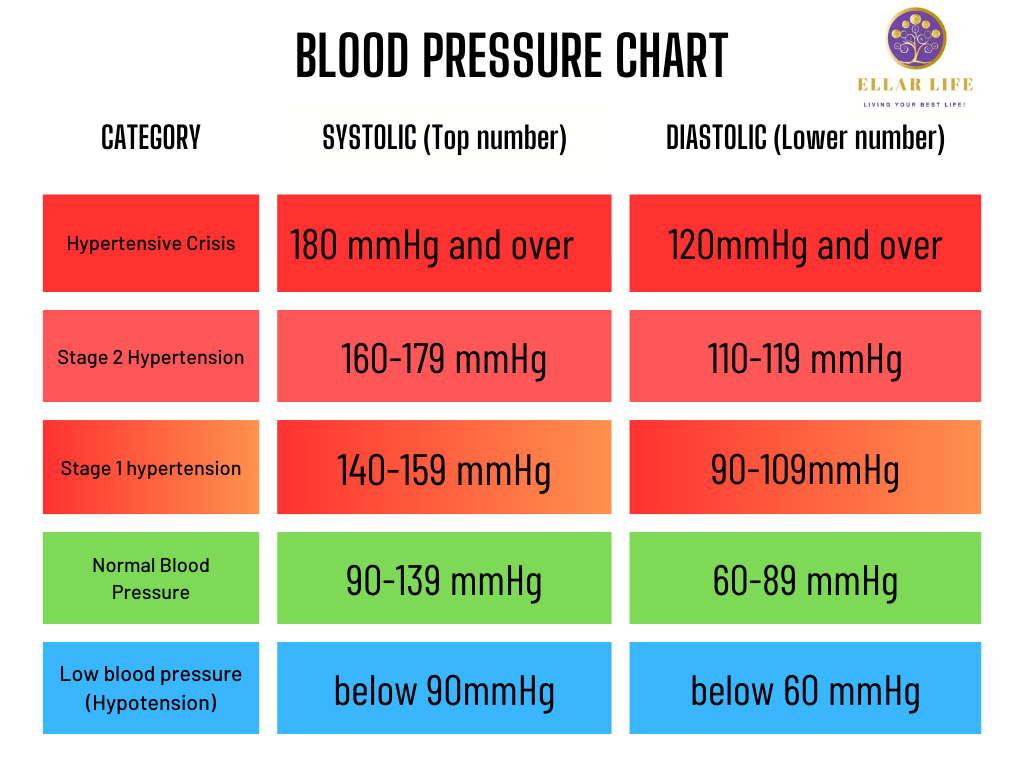What is high blood pressure?

What is High Blood Pressure (Hypertension)?
High blood pressure, also known as hypertension, affects 1 in 3 adults worldwide and 4 out of 5 people with hypertension are not treated properly. This disease is often known as the silent killer because, although you may feel fine, if left untreated, high blood pressure can lead to stroke, heart attack, kidney damage, blindness, heart failure and other health problems.
People from certain ethnicities (African or Caribbean heritage, South Asian populations) appear to suffer more from hypertension and may have complications at a younger age. People who are aged 40 years and over are more at risk of developing hypertension especially when there are other factors involved, such as family history, being overweight, living with diabetes, not having enough sleep, rest, or exercise. Be mindful of your stress levels as this can raise your blood pressure. Make out time to relax and clear your mind!
In this post, we’ll explain what high blood pressure is, how it is measured and what the numbers mean. We’ll also explain why it’s important to know your numbers, the risks associated with hypertension and how to prevent complications by making the right changes.
High blood pressure
Imagine your heart is like a pump that sends blood all around your body through pipes called blood vessels. High blood pressure is when the blood is pushing hard against the walls of those blood vessels.
It's a bit like water gushing through a water hose pipe. If the force of water rushing through the hose is too much, it can damage the pipe by stretching it. Well, our blood vessels, can be damaged if the blood pushes too hard for a long time. This can be a problem.
So, when we talk about high blood pressure, we mean the blood is pushing too strongly against the walls of the blood vessels. It's important to keep the pressure at a good level, just like you wouldn't want to blow up a balloon too much. We want to keep our blood vessels healthy, so our heart doesn't have to work too hard! That's why it's good to eat healthy food, manage your stress and stay active – it helps keep our blood pressure just right.
How is blood pressure measured?
There are many machines and monitors available to check your blood pressure. You can also check it yourself at home but it’s important to know that you are doing it right. Blood pressure is measured with blood pressure monitors. You can measure yourself at home, a pharmacy or at the doctors. It is recommended that you use an automatic blood pressure monitor that measures blood pressure on your upper arm. This is because wrist and finger blood pressure monitors are prone to more errors.
Things to note when checking your blood pressure:
Make sure you are relaxed, sit still for about 5 minutes before.
Avoid having a conversation during the process.
Sit still with straight back, both feet on the floor and legs uncrossed.
Use the right cuff size for your arm.
Rest your arm on a table and at the same level as your heart.
Empty your bladder.
Avoid caffeine, smoking, or exercise for 30 minutes before you take your blood pressure.
How to interpret blood pressure readings
Now that you’ve checked your blood pressure the next thing is to interpret the results, and to do so we need to understand what the numbers mean. Blood pressure is measured in millimetres of mercury (mmHg).
The top number (usually higher) is the systolic blood pressure. This is the pressure in your blood vessels as your heart pumps blood around your body.
The bottom number (usually lower) is the diastolic blood pressure. This is the pressure in your blood vessels when your heart is at rest, in between heart beats.

What can I do to prevent high blood pressure?
Eat a Healthy Diet:
Focus on a diet rich in fruits, vegetables, whole grains, and lean proteins.
Limit the intake of saturated fats, trans fats, cholesterol, and sodium.
Maintain a Healthy Weight:
Being overweight or obese can contribute to high blood pressure. Aim for a healthy weight through a balanced diet and regular physical activity.
Exercise Regularly:
Engage in regular physical activity, such as brisk walking, jogging, swimming, or cycling. Aim for at least 150 minutes of moderate-intensity exercise per week.
Limit Alcohol Intake:
If you drink alcohol, do so in moderation. For most adults, this means up to one drink per day for women and up to two drinks per day for men.
Quit Smoking:
Smoking can raise your blood pressure and damage your blood vessels. Quitting smoking is one of the best things you can do for your overall health.
Reduce Stress:
Chronic stress can contribute to high blood pressure. Find healthy ways to manage stress, such as through relaxation techniques, hobbies, or activities you enjoy.
Limit Caffeine Intake:
While the link between caffeine and blood pressure isn't entirely clear, it's a good idea to moderate your caffeine intake, especially if you are sensitive to its effects.
Monitor Your Blood Pressure:
Regularly check your blood pressure at home, especially if you have risk factors or a family history of high blood pressure. Monitoring can help you catch any changes early.
Get Enough Sleep:
Aim for 7-9 hours of quality sleep per night. Poor sleep patterns can contribute to high blood pressure.
Limit Processed Foods:
Processed foods can be high in sodium, which can contribute to high blood pressure. Read food labels and choose low-sodium alternatives when possible.
It's important to note that if you have concerns about your blood pressure or overall health, it's advisable to consult with a healthcare professional. They can provide personalized advice based on your individual health status and history.
To summarise, raised blood pressure, also known as hypertension, is a silent killer because people who have high blood pressure often don’t know that something is wrong because there are no signs. Unfortunately, if high blood pressure is not found in time, and treated, it could result in a heart attack, stroke, and further complications such as chronic kidney disease, blindness. People living with diabetes also have a higher risk of complications with uncontrolled hypertension. So, it’s important to check your blood pressure regularly, especially if you have a family history of hypertension, have diabetes, are often stressed, not sleeping well or aged 40 year and over. Making simple changes and adjustments to your lifestyle, which can help bring your blood pressure down.
So, what next?
I hope you found today's blog on 'What is high blood pressure' useful. Enter your email address to subscribe to this blog and receive notifications of new posts by email.
Now, that you’ve understood a bit more about high blood pressure and the complications caused by undetected hypertension, it’s important that you know what your numbers are.
Check your blood pressure today!
Remember that you can check your blood pressure at home by using an approved blood pressure monitor and make sure you are using the right technique because you can get inaccurate readings if you are not doing it properly. You can use this chart to record your blood pressure at home and present it to a healthcare professional if you have any concerns.
A local pharmacy near you may offer a free blood pressure check service, and you can find a participating pharmacy using the pharmacy finder.





Comments ()